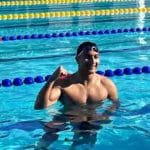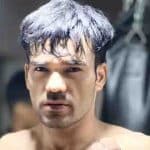UNITED NATIONS, Apr 07 (APP): With athletes calling for a more equitable world — both on and off the playing field — the United Nations marked the International Day of Sport for Development and Peace on Thursday.
The annual commemoration, now in its 10th year, highlights the positive role sport plays in communities and lives across the globe.
Elite and amateur athletes of all ages joined industry experts, diplomats and UN officials for the event – the first to be held in-person since the start of the COVID-19 pandemic. This year, the theme is ‘Scoring for People and the Planet’.
Whether recreational or competitive, sport brings people together, often bridging cultural, ethnic and national divides, said John Wilmoth of the UN Department of Economic and Social Affairs (DESA).
“Sport is also a catalyst for the promotion of tolerance and respect, inclusion, diversity, gender equality and mitigating the effects of climate change,” he added.
“We must work together to ensure that no one is left behind in sporting activities – especially youth, older persons, persons with disabilities, Indigenous Peoples, and other marginalized groups.”
In a video message played at the event, football legend Didier Drogba recalled the fundamental role sport has in the development of a culture of peace.
“The world of sport, including athletes, has an important role to play to set an example, especially for young people,” said the former striker, a Goodwill Ambassador for the UN health agency, WHO.
“They want to advance causes that serve the common good by supporting gender equality, ending racial discrimination and participating in the protection of our environment.”
The commemoration was organized around a series of moderated conversations, examining complex issues such as players’ rights and impact; achieving diversity, equity and inclusion; gender, race and the changing media landscape, and climate action.
The keynote conversation featured another iconic footballer, Javier Zanetti, now Vice-President of Inter Milan.
The Italian club runs a social programme in 30 countries that uses sporting values and football as an educational tool, reaching more than 10,000 young people. Some of the boys and girls taking part were in the room, proudly sporting their blue and black Inter Campus uniforms.
“Our mission, beyond sharing our values and our working methodology, is really about teaching them that they belong; giving them a sense of belonging,” he said, speaking through a translator.
Zanetti grew up in a poor neighbourhood in Argentina but his passion for football, combined with a lot of hard work, took him to Inter where he became one of the world’s most popular players.
He spoke of how the sport has touched the entire world, underscoring its power and far-reaching potential.
“What we need to do is try to share the human values and fight against all kinds of discrimination, against racism, and carry out projects focused on development in any part of the world, everywhere, because that is the path through which the world can change,” he said.
“We also need to have the sense of duty among adults to make football better, to make the future better,” he added. “But for the future to be better, boys and girls throughout the world have to have role models that can express that, so the great responsibility falls upon us.”
During the discussion on greater inclusion, professional basketball player Batouly Camara spoke about growing up as a Muslim girl and first-generation Guinean in New York City, where she began playing basketball at age 11.
While in college, she started organizing basketball camps for young girls in Guinea, where she met a young girl who went on to change her life.
“She said to me…’How do I continue to build on this hope that you’ve now instilled?’”, Ms. Camara recalled. “And I felt it was an absolute disservice for me to instill hope and not provide resources, or equipment, or the tools necessary for her to be great and live out her dream, because I had mentors who did the same for me.”
Ms. Camara later founded Women and Kids Empowerment (WAKE), which runs camps in India, France and the United States, underlining her “moral obligation” to provide women and girls with access, resources and opportunities to succeed.
Follow the PNI Facebook page for the latest news and updates.









